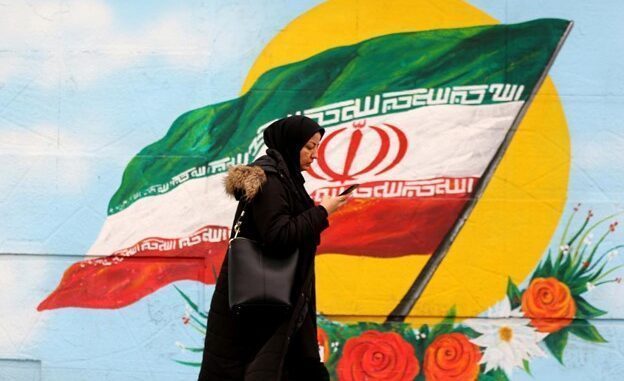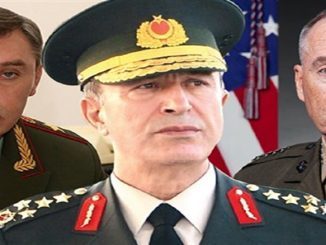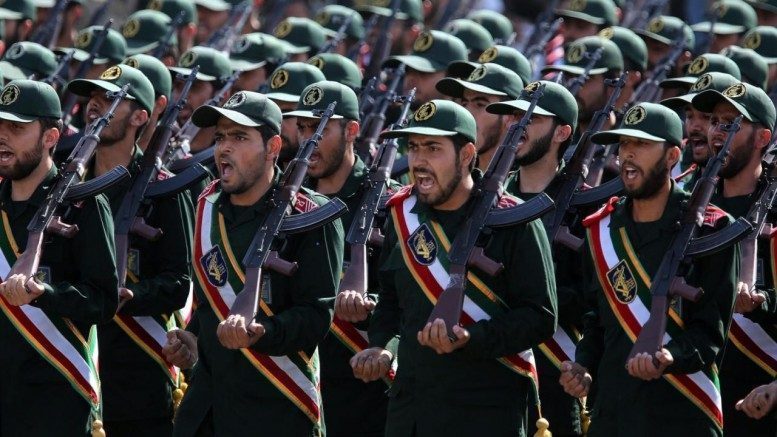
US State Department says Washington is open to a possible meeting to ‘discuss a diplomatic way forward’ about Iran’s nuclear program The United States has said it would accept a European invitation to engage in direct talks with Iran to revive the 2015 nuclear deal.
“The United States would accept an invitation from the European Union High Representative to attend a meeting of the P5+1 and Iran to discuss a diplomatic way forward on Iran’s nuclear program,” State Department spokesperson Ned Price said in a statement on Thursday.
The P5+1 consists of the five permanent members of the UN Security Council, the US, UK, France, China and Russia, plus Germany. The six countries are the original signatories to the 2015 agreement with Iran.
The comment from Washington came hours after Enrique Mora, the European Union’s deputy secretary general, said he was ready to invite the parties to “informal” talks.
“The #JCPOA at a critical moment. Intense talks with all participants and the US. I am ready to invite them to an informal meeting to discuss the way forward,” Mora wrote on Twitter.
It is not clear whether the Iranian government, which insists that US sanctions must be lifted as the first step towards reinstating the pact, will agree to the meeting.
Under former President Donald Trump, the United States withdrew from the deal, which had seen Iran scale back its nuclear program in exchange for lifting sanctions against its economy.
The previous administration then piled sanctions on various sectors of the Iranian economy as part of its maximum pressure campaign. As a result, Iran started loosening its adherence to the deal, known as the Joint Comprehensive Plan of Action (JCPOA), by enriching uranium beyond the limits set by the agreement.
The prospect of direct talks arose days ahead of an Iranian deadline for restricting the access of UN inspectors to the country’s nuclear facilities if sanctions are not lifted.
Earlier on Thursday, the E3, the three European participants in the deal, and the United States released a joint statement warning Iran against going through with that step.
“The E3 and the United States affirmed their shared objective of Iran’s return to full compliance with its commitments under the JCPOA,” the statement said.
“Secretary Blinken reiterated that, as President Biden has said, if Iran comes back into strict compliance with its commitments under the JCPOA, the United States will do the same and is prepared to engage in discussions with Iran toward that end,” it said.
European powers, US warn Iran against further breaches
The United States and major European powers warned Iran against further breaches of the nuclear deal, presenting a united front for diplomacy while opposing a looming move by the Islamic Republic to restrict UN inspectors’ access to its atomic facilities.
In a joint statement released on Thursday, US Secretary of State Tony Blinken and the foreign ministers of the E3 – the UK, Germany and France – expressed concern over Iran’s violations of the agreement, which Washington nixed in 2018 and has yet to rejoin.
The pact, known as the Joint Comprehensive Plan of Action, saw Iran scale back its nuclear program in exchange for lifting sanctions against its economy.
“The E3 and the United States affirmed their shared objective of Iran’s return to full compliance with its commitments under the JCPOA,” the statement said.
US President Joe Biden had committed to reviving the agreement, but his administration is calling on Iran to return to full compliance with the deal before sanctions are lifted.
In the joint statement on Thursday, Washington reiterated its position on its preferred sequence for a return to the deal – but said it was open to talks with Iran to ensure that goal.
Notably, that part of the communique singles out the American position, suggesting that it may not be shared by the E3.
“Secretary Blinken reiterated that, as President Biden has said, if Iran comes back into strict compliance with its commitments under the JCPOA, the United States will do the same and is prepared to engage in discussions with Iran toward that end,” it said.
Later on Thursday, Washington said it was ready to accept an invitation to direct talks with Iran to “discuss a diplomatic way forward” about Tehran’s nuclear program.
Further down in the statement, the three European countries said they supported both countries to adhere to the agreement: “The E3 welcomed the prospect of a US and Iranian return to compliance with the JCPOA.”
Former US President Donald Trump embarked on a “maximum pressure” campaign of sanctions against Iran after leaving the deal. In turn, Iran has been loosening its commitment to the pact by enriching uranium beyond the restrictions set by the pact.
The Iranian parliament has also passed a law to end the “additional protocol” of snap UN inspections of Iran’s nuclear facilities by the International Atomic Energy Agency (IAEA).
“The E3 and the US called on Iran not to take any additional steps, in particular with respect to the suspension of the Additional Protocol and to any limitations on IAEA verification activities in Iran,” the Western countries said on Thursday.
“The E3 and the United States are united in underlining the dangerous nature of a decision to limit IAEA access, and urge Iran to consider the consequences of such grave action, particularly at this time of renewed diplomatic opportunity.”
Iranian Foreign Minister Mohammad Javad Zarif was quick to hit back at the statement, saying Iranian breaches to the pact were merely a result of Washington’s withdrawal from it.
“Our remedial measures are a response to US/E3 violations. Remove the cause if you fear the effect,” Zarif wrote on Twitter.
Despite the warning to Iran, the US-European statement had lauded the nuclear accord.
“Regarding Iran, the E3 and the United States expressed their shared fundamental security interest in upholding the nuclear non-proliferation regime and ensuring that Iran can never develop a nuclear weapon,” the diplomats said.
“In this context, the conclusion of the JCPOA was a key achievement of multilateral diplomacy. The E3 welcomed the United States’ stated intention to return to diplomacy with Iran as well as the resumption of a confident and in-depth dialogue between the E3 and the United States.”
The Western officials also raised questions over the increased level of uranium enrichment by Iran, noting that it had “no credible civil justification”.
“Uranium metal production is a key step in the development of a nuclear weapon,” the statement said.
After reviving the JCPOA, the countries pledged to coordinate to strengthen the deal and address Iran’s ballistic missile program and regional activity.
Iran has ruled out negotiating over its ballistic missile program or regional policies with Washington, arguing it was the US which militarized the region with weapon sales to Saudi Arabia and the UAE.



